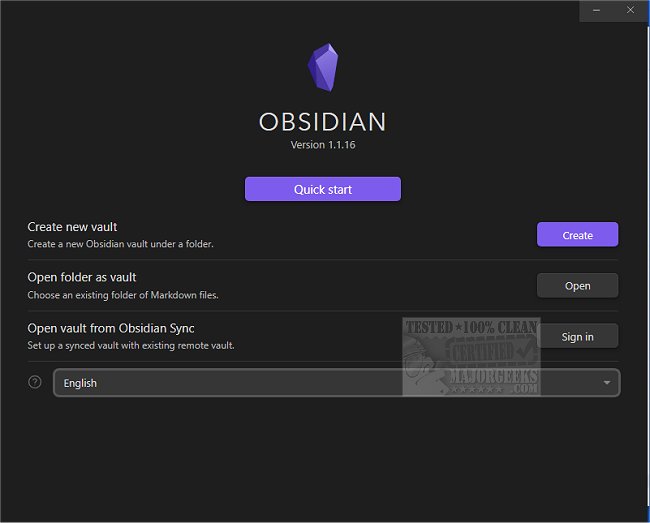Obsidian version 1.10.6 has been released, enhancing its functionality as a versatile knowledge base and notetaking application that works seamlessly with Markdown files. The app allows users to create internal links between notes, facilitating the visualization of connections through an interactive graph, which is particularly useful for organizing and structuring thoughts in a non-linear manner. This makes Obsidian an ideal tool for writers, researchers, academics, and other professionals who require a flexible and powerful note-taking solution.
One of the standout features of Obsidian is its high degree of extensibility, which allows users to customize their workspace according to their preferences. The application boasts 25 core plugins, 876 community plugins, and 180 themes, offering a wide range of options for personalization. Users can also employ custom styling to further tailor the interface.
Obsidian supports various features that enhance the user experience, including:
- Wiki-style backlinks for creating interconnections between notes
- The ability to create hierarchical lists using multi-level bullet points
- Embedding images and media for richer content
- A table of contents for easier navigation within notes
- Robust plugin support for added functionality
All notes are stored locally on the user's device, ensuring privacy and security. Users can also encrypt their notes or back them up using services like Dropbox, Cryptomator, or any application that supports plain text files.
In summary, Obsidian continues to evolve, providing an increasingly powerful tool for knowledge management and note-taking, catering to the needs of professionals who value flexibility and customization. As the application grows, users can expect further enhancements and features that facilitate effective information organization and retrieval.
Future updates could potentially introduce enhanced collaboration tools, improved mobile support, or integration with more cloud services, further solidifying Obsidian's place as a leading choice for knowledge management
One of the standout features of Obsidian is its high degree of extensibility, which allows users to customize their workspace according to their preferences. The application boasts 25 core plugins, 876 community plugins, and 180 themes, offering a wide range of options for personalization. Users can also employ custom styling to further tailor the interface.
Obsidian supports various features that enhance the user experience, including:
- Wiki-style backlinks for creating interconnections between notes
- The ability to create hierarchical lists using multi-level bullet points
- Embedding images and media for richer content
- A table of contents for easier navigation within notes
- Robust plugin support for added functionality
All notes are stored locally on the user's device, ensuring privacy and security. Users can also encrypt their notes or back them up using services like Dropbox, Cryptomator, or any application that supports plain text files.
In summary, Obsidian continues to evolve, providing an increasingly powerful tool for knowledge management and note-taking, catering to the needs of professionals who value flexibility and customization. As the application grows, users can expect further enhancements and features that facilitate effective information organization and retrieval.
Future updates could potentially introduce enhanced collaboration tools, improved mobile support, or integration with more cloud services, further solidifying Obsidian's place as a leading choice for knowledge management
Obsidian 1.10.6 released
Obsidian provides you with a knowledge base and notetaking app capable of working with Markdown files.


